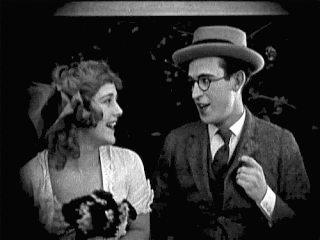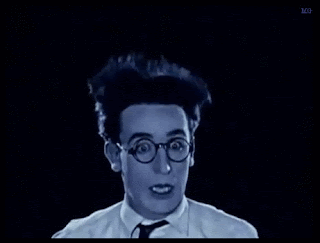I vaguely remembered this song from my childhood: though we weren't exactly the Von Trapps, we were given to singing in harmony, even in round, and I may have taken the soprano part (though I doubt it). Then the whole thing was tossed to the back of my brain, to the point that I began to think I had imagined it. For decades, it just didn't come up.
What shook it loose? Uhhhh. . . my bird got sick. That's right. I was ridiculed on someone else's blog just for having a bird, and a large picture of me was posted with Jasper on my shoulder: anyone who has birds must be nuts, some crackpot old lady half out of her mind.
I'm not. But to get back to the original point, we did some painting upstairs (in my office, in fact: it's now a lovely soft blue with a touch of dove-grey) and my bird got sick. We tried everything to keep him away from possible fumes. It may not have been the paint at all. He has something wrong with the toe on his left foot, and has partially lost his grip. Did he take a fall? For whatever reason, he was puffed up, ruffly and almost unresponsive, and we feared the worst.
When I picked him up (for he no longer had the energy to just hop into my hand as usual), he snuggled down in my palm as if in a nest and buried his head in my hand. Not normal behaviour, at all. It was then that the song began to play in my head. After more than 50 years, my sick birdie pushed "play".
Ah, poor bird. Take thy flight. For some reason I remembered my brother Arthur singing it. It was one of those songs that came from who-knows-where: nobody wrote it, apparently. It just "was". On doing a bit of digging, however, I discover that the roots of it may well be Elizabethan. No doubt it sounded different hundreds of years ago and there were/are many versions, but this is the one I kept finding on YouTube.
This was the only decent version I uncovered. It's an amateur group, but they're definitely singers. It's touching, if not perfect: meaning, it's music. I like the way they sing it more than once, the way they work on it and discuss it and let it evolve. The process is everything (and I particularly like their obvious joy in singing).
Most of the videos I found were of Godawful children's choruses singing wildly off-key. It's a children's song, apparently, like Frere Jacques. . . but hey, do you hear a sort of similarity? Flip Frere Jacques into a minor key, and there you have it. With only a few changes, we have the original Ah Poor Bird, stolen by who-knows-who.
Way leads on to way. The next association was with Gustav Mahler and his - what, second symphony? We played Mahler recordings endlessly when I was a child (along with every other classical composer, up to and including Kurt Weill and Alban Berg). One day the slow movement of this symphony was playing, and my older brother Walt said, "Listen to this. It's Frere Jacques." "No it isn't." "Yes it is. It's just in a minor key." "What's that?" "You know. The sad key." I was probably eight years old, but it somehow stuck.
I found a recording of the Mahler piece and will post it next, along with some revelations about the composer and Leonard Bernstein, then deemed the go-to guy for interpreting Mahler symphonies. It's funny how finding one video, or remembering one bit of tune due to a sick bird, can open out memory telescopically, or rather, kaleidoscopically.
By the way, my bird suddenly recovered and is now hopping into my hand, devouring millet and humping his plastic toys with his usual elan.






















































